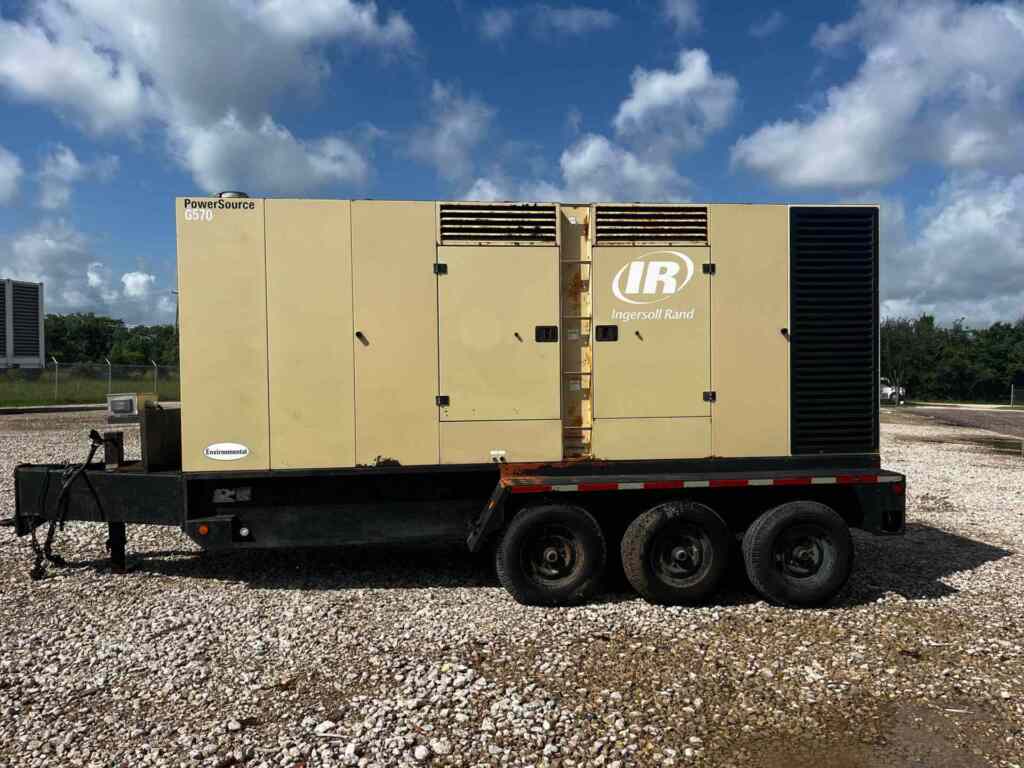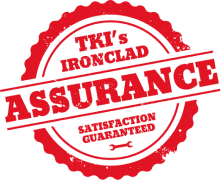The power outages resulting from a lack of a backup generator can have significant costs for both residential and commercial properties. Businesses face lost revenue due to critical outages, while households may incur costs such as spoiled food and emergency supplies. But what is the difference between a commercial and residential generator? Keep reading as we break down the differences between the two, and help you learn how easy sizing a generator for commercial properties can be!
Residential Generators vs. Commercial Generators
Residential generators are ideal for those who need an efficient, reliable, and cost-effective way to back up their home’s power needs during a short-term power outage. Commercial generators, on the other hand, are better for larger businesses that need more power and require the ability to run multiple appliances or large equipment. Commercial generators are designed to operate on various fuel sources and provide for continuous operations during an outage. Other differences are listed below.
Residential Generators:
- Residential generators come in two styles – portable and standby. Portable generators are ideal for smaller households and are easily moved for use in different locations. Standby generators are permanently installed and are usually larger and more powerful.
- Residential generators can run on natural gas, diesel, propane, or gasoline. The average-sized home needs at least 10 kW of power, but not usually more than 22 kW of power. Most of these smaller generators run on natural gas, propane, or diesel fuel.
- Routine maintenance is important to make sure a residential generator is working properly and to extend its life.
Commercial Generators:
- Commercial generators are designed for larger, long-term power needs in businesses and offices. Commercial generator installation must meet all current building codes and safety regulations.
- Maintenance considerations for commercial generators are much more extensive than residential generators, as they must be regularly serviced to ensure they are ready to go in the event of a power outage.
- Commercial generators are typically powered by natural gas or diesel and can provide enough electricity to power any size building, institution, or manufacturing facility. These generators are available in a range of sizes, starting from around 20kW to well over 3MW.
Assessing The Power Needed For Your Commercial Building
When sizing a generator for commercial properties, there are a few things to consider. Choosing an oversized unit could mean a high fuel bill. On the other hand, selecting an undersized generator could mean the inability to keep your operations running during an outage. Before you begin your calculations, think about the following:
- Size and power output – choose a generator that’s the right size and has the right power output for your needs.
- Fuel source – choose a fuel source that is reliable and affordable in your area. Larger commercial units built for industrial applications usually run on diesel.
- Cost – residential generators can range in cost from $6,000-$35,000. Commercial and industrial generators range greatly in price and can cost much more.
- Installation – it’s important to hire professionals who are licensed and can install generators correctly. Professional installers can also provide valuable advice on how to properly maintain and service the unit.
- Maintenance requirements – you can prevent most service issues through regular generator maintenance. To keep your generator in optimal working condition, it is best to have a professional maintain it at least once a year.
How To Size A Generator For A Commercial Building
Because the power needed for a commercial building may vary, it can be helpful to talk with a professional about sizing a generator for commercial properties. Not all generators are made equal, and not all businesses use the same amount of energy. A professional generator retailer can help you shop by generator kW to find the equipment that best suits your needs.
Unfortunately, finding how much power you need can be tricky. Your energy bill doesn’t state the number of kilowatts you use, so you’ll need to do some power calculations yourself. If you’re wondering how to find kWh, you’ll need to break out your calculator and divide your total power consumption by the hours you operate. Similarly, if you want to know how to find kWh cost, you’ll take your power bill and divide it by the power consumption. These numbers can help you find the kW you need and will influence your generator purchase.
Generator Needs By Industry
Just as the power needed for a commercial building may vary, so too does the power needs of different industries. The power needs of a hospital are different from that of a construction site. Each industry must assess its power needs and then choose the appropriately sized generator as a power solution. To calculate the size generator you need, follow these calculations by industry:
- For hospital applications: 50 kilowatts + 10 watts per square foot. This power requirement is calculated based on the size of the hospital space, ensuring there is ample electricity for all essential medical equipment.
- For financial institutions: 50 kilowatts + 5 watts per square foot. This power requirement is essential for ensuring uninterrupted operations of critical systems and services in the event of a power outage.
- For data center generators: 50 kilowatts + 10 watts per square foot. This power requirement ensures that the data center has the necessary capacity to support its operations and provide a continuous energy supply.
- For telecom generators: 50 kilowatts + 5 watts per square foot. This requirement ensures that the power output scales proportionally based on the size of the telecom facility, allowing for reliable energy supply during operations.
- For water district applications: 50 kilowatts + 10 watts per square foot. This formula is used to determine the minimum power requirement for water district applications based on the size of the facility in square feet.
The Final Word On Generators
Once you understand the difference between commercial and residential generators, you can begin your search for the generator that best fits your needs. Just remember that sizing a generator for commercial properties can be challenging. Although many online resources and calculators can help you figure out the power needed for a commercial building, sometimes it’s best to let a professional generator retailer help to ensure that the generator you purchase is up to the task during a power outage or emergency.
 Turnkey Industries offers a variety of high-capacity
Turnkey Industries offers a variety of high-capacity 




